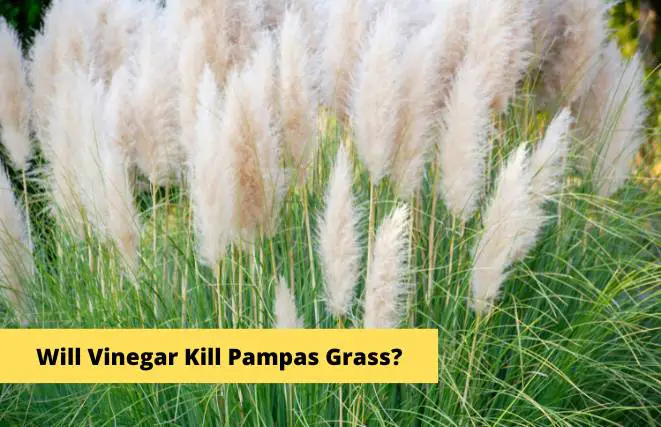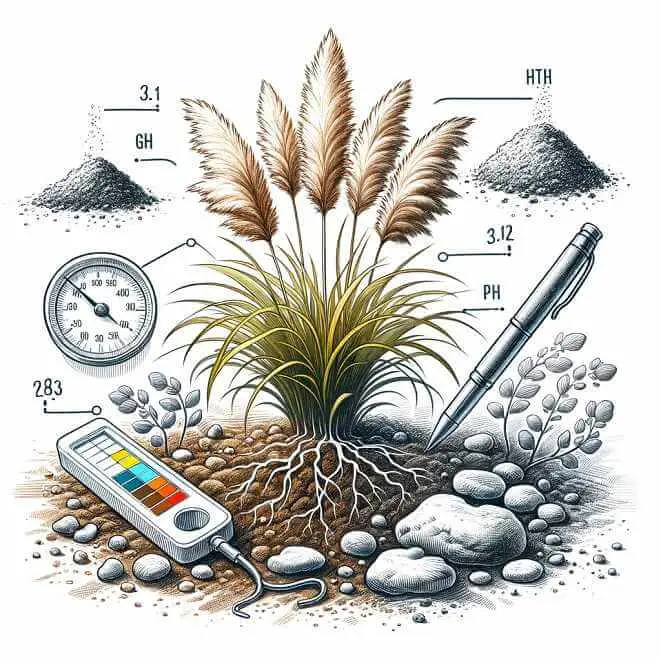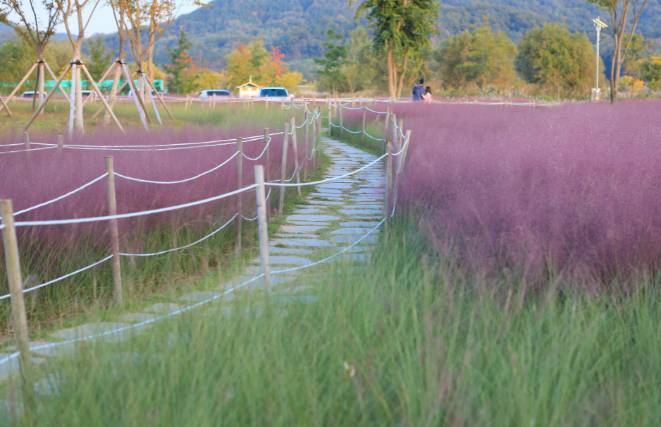Yes, Roundup can kill pampas grass, and many people use it to kill ornamental grasses like pampas grass. Roundup is a mixture of two chemicals, glyphosate, and aminomethylphosphonic acid, which kill most types of plants. Ammonium is the primary active ingredient in Roundup, which is used to kill weeds, grasses, broad-leafed plants, ornamental plants, and others.
With many of our state’s parks and recreation areas suffering from pampas grass infestation, we should be doing everything we can to keep the grass from spreading. By using Roundup, we can kill the grass and keep it from coming back.
Knowing More About Roundup
Roundup is one of the most popular weed killers in the United States, and it is used by farmers to kill weeds, but do you know that it has the ability to kill plants that are not weeds? Pampas grass is one of those plants; it can grow up to 4 feet tall and produce light green flowers. It is related to the common Bermuda grass.

Check the latest price on Amazon
Pampas grass has turned into an environmental enemy. It has invaded large areas of South America, becoming the most aggressive invasive species in the world. The pampas grass is also known as the “Queen of the grasslands,” which is so widespread that it has been called the “grass of the coast,” and it has extended its range to the regions of Chile, Argentina, Uruguay, and Paraguay.
How To Use Roundup to Get Rid of Pampas Grass
Roundup is a common over-the-counter weed killer that can be used on most types of vegetation. It’s commonly mixed with water to make a solution that’s sprayed onto the ground or poured onto the foliage. The best way to use it is to spray it on the freshly cut stalks. It was also advised to repeat spraying the stalks after a week. Roundup is said to be generally safe, though people with sensitive skin, respiratory problems, or children should avoid using it.

Check the latest price on Amazon
Other important things to note about Roundup
Roundup is a weed killer that can be used to quickly get rid of unwanted weeds in your yard. It is also an effective herbicide that can be used to kill unwanted plants. Its maximum usage rate is 2 ounces per acre. As far as using Roundup for this purpose, it is important to follow the product instructions carefully to ensure success at controlling the weeds.
To be honest, killing pampas grass is not a problem that many people have to deal with. Pampas grass is a low-growing perennial that spreads by seed, and although it is not terribly invasive, it can cause a nuisance when it is not in control. Also, as a result of over-watering, pampas grass has become a problem in many areas of the United States. This is why it is now recommended to use Roundup as a tool to kill off the harmful weed.
Is Roundup Dangerous for Human Health?
Roundup is a commonly used weed killer used to rid our lawns of unwanted vegetation. One of the most controversial uses of RoundUp is its use in the management of pampas grass. The substance has been used since the 1970s but has become increasingly controversial as the public has become more aware of the environment.
Roundup contains a chemical called Glyphosate. Glyphosate is currently the most popular herbicide commercially available and is routinely sprayed on hundreds of millions of acres of crops, roadsides, and other lands across the United States. Glyphosate has been the subject of controversy recently due to claims that it may cause cancer in humans. Before, this ingredient was categorized as a “probable” human carcinogen. But later, experts announced that it does not pose a risk to humans as long as it is used according to directions. They also stated that it is unlikely that it causes cancer in humans.
Other Methods To Getting Rid Of Pampas Grass
Pros and Cons of Using Vinegar as a Weed Killer for Pampas Grass
| Pros | Cons |
|---|---|
| Non-toxic and environmentally friendly | Ineffectiveness on established pampas grass |
| Readily available and affordable | Non-selective nature |
| Effective on young weeds | Incomplete eradication |
| Rapid degradation in the environment | Impact on soil pH |

Check the latest price on Amazon
Remember that the effectiveness of vinegar as a weed killer may vary depending on factors such as weed maturity, concentration of vinegar used, and application method. It’s always important to exercise caution, follow proper application guidelines, and consider alternative methods or professional advice for persistent or large-scale pampas grass issues.
Pros and Cons of Using Bleach as a Weed Killer for Pampas Grass
| Pros | Cons |
|---|---|
| Effective on a wide range of weeds | Environmental and health risks |
| Readily available and affordable | Non-selective nature |
| Can quickly kill weeds and prevent regrowth | Potential damage to desirable plants |
| Easy to apply | Persistence in the soil and groundwater |
| Does not leave residue or affect soil pH | Risk of runoff and contamination |

Check the latest price on Amazon
It’s important to note that bleach is a strong chemical and should be used with caution. It can have adverse effects on the environment, including soil quality, water sources, and nearby plants. Proper safety measures should be followed when using bleach, such as wearing protective gear and carefully targeting the application to avoid unintended harm to desired vegetation.
FAQ
Yes, salt can be an effective method to kill pampas grass. When salt is applied to the plant and its surrounding soil, it dehydrates the grass, disrupts its cellular functions, and ultimately leads to its demise. Rock salt or table salt can be used for this purpose. However, it’s important to note that salt can also have a negative impact on the soil and surrounding vegetation, as it can accumulate and hinder the growth of other desirable plants. Careful application and targeted treatment are crucial to avoid damage to the ecosystem. Additionally, it’s advisable to consider alternative methods for pampas grass control, such as physical removal or herbicidal treatments, depending on the specific situation and desired outcomes.
The roots of pampas grass can grow quite deep, extending up to several feet into the soil. They have a fibrous and extensive root system that helps anchor the plant firmly in the ground and enables it to access nutrients and water. The depth of pampas grass roots allows it to withstand various environmental conditions, including drought and strong winds. However, the exact depth of the roots can vary depending on factors such as soil type, moisture levels, and the age of the plant. It’s important to be aware of the depth of the roots when considering methods of removal or control, as proper techniques will be required to ensure effective eradication.
READ MORE: How deep are pampas grass roots?
Conclusion
Pampas grass is a perennial grass that can be found wild in Argentina and Chile, as well as in some pastures, gardens, and cropland. Its large, thick, and rigid blades make it a great plant for lawns and roof-top plantings. But despite its benefits, it’s not a grass everybody would love. There are a few things that make it a nuisance and a few ways to handle this problem, but the first thing to do is to identify what you’re dealing with. It would also help to do some research on any chemicals before using them.








